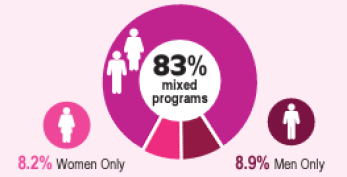

Applying interventions designed to reduce and manage the symptoms of substance use disorders.
In order to endorse the evidence-based practices in the field of addiction treatment in Pakistan, ITRAMIC Foundation Lahore organized virtual training for treatment staff and professionals from 22nd to 29th October 2021, in collaboration...
Drinking alcohol can increase someone's risk of dying by suicide. This is connected to both the impact of long-term alcohol use and the immediate effects of drinking.
Samaritans and Suicide Prevention Consortium have conducted research...
Importance Alcohol withdrawal syndrome (AWS) is a common inpatient diagnosis managed primarily with benzodiazepines. Concerns about the adverse effects associated with benzodiazepines have spurred interest in using...
During the scaling-up of a national Norwegian take-home naloxone (THN) program, data collection methods shifted from paper-based to electronic. The aim of this study was to explore staff preferences towards the...
Source:
The ASAM Criteria® Assessment Interview Guide is the first...
Objective To assess the effectiveness of e-cigarettes in smoking cessation in the USA from 2017 to 2019, given the 2017 increase in high nicotine e-cigarette sales.
Methods In 2017, the PATH Cohort Study included data on 3578...
PURPOSE: A growing body of evidence has implicated the endocannabinoid (eCB) system in the acute, chronic, and withdrawal effects of alcohol/ethanol on synaptic function. These eCB-mediated synaptic effects may contribute to the...
Traditionally, relapse prevention for addictive disorders has been based on cognitive-behavioural therapy (CBT). The development of mindfulness-based relapse prevention (MBRP) by the University of Washington, which integrates core aspects...
Substance use risks are significantly higher for people who obtain drugs on the unregulated market as there is no quality control and drug contents are unpredictable. This lack of predictability has increased during the COVID-19...
Introduction
Inter-GLAM is a European project, co-funded by the European Union’s DG Justice Programme "Drugs Policy Initiatives - Supporting initiatives in the field of drugs policy” (JUST-2019-AG-DRUGS). The project aims to collaborate...
This manual introduces a concept of trauma and offers a framework for becoming a trauma-informed organisation, system, or service sector.
The manual provides a definition of trauma and a trauma-informed approach and offers 6 key...
This reading list is designed to complement the webinar presented by Lili Lemieux-Cumberlege on trauma, homelessness, and substance use. The presentation explored the subject through a personal, interpersonal, and systemic lens, and...
Compassion focused therapy (CFT) is based on the evolutionary, functional analysis of basic social motivational systems (e.g., to exist within groups and care for kin) and emotional systems (e.g., to respond to threats, seek out contentment...
An organisational culture is the collection of values, expectations, and practices that shape the overall feeling and actions among staff members. A culture of care is an environment that is created where people feel valued and supported as...
People who are homeless experience significant physical, mental and social challenges that are linked with poor health and functioning. Rates of substance use issues, mental health difficulties, injury and chronic disease are significantly...
The Institute of Alcohol Studies presents Seminar Two in its four-part series on alcohol and sustainability. Seminar Two looks at the impact the production, packaging and distribution of alcohol has on both the local and global environment...
The Institute of Alcohol Studies presents Seminar Three in its four-part series on alcohol and sustainability.
Seminar Three explores the voluntary commitments on sustainability made by alcohol producers, examining pledges in the wider...
With NoLo products increasing in popularity among producers and customers, a new report looks at how these drinks are marketed in the UK and how and why consumers drink them.
Using interviews with drinkers and non-drinkers, as well as...
Share the Knowledge: ISSUP members can post in the Knowledge Share – Sign in or become a member